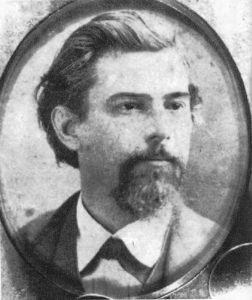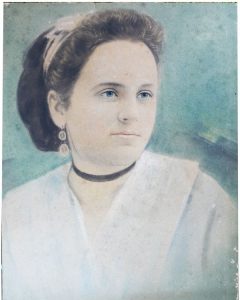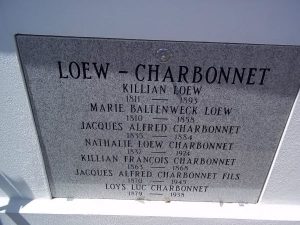Unpublished: Diary of a Louisiana Conscript
 Extraordinary things can come bound in brown leather with tiny, cramped writing. In search of some family history, I took a trip to Tulane University’s Special Collections Archives in New Orleans. It was a trip for firsts. It was not only my first time to the Crescent City, but my first ever archival excursion. Like many budding Civil War historians, I wanted to know if I had any personal connections to the conflict. Amongst my ancestors, I found several soldiers who had served in the Confederacy from Mississippi, Alabama, and Louisiana regiments on both sides (special mention to one ancestor who served on the 32nd Wisconsin and the ONLY Union soldier in my family tree). I was after a diary written by a member of the 15th Confederate Cavalry, Company G, the same regiment to which one of my ancestor belonged. While the diary didn’t disclose any pertinent information about my ancestor, this unpublished primary source was mind-blowing in other ways.
Extraordinary things can come bound in brown leather with tiny, cramped writing. In search of some family history, I took a trip to Tulane University’s Special Collections Archives in New Orleans. It was a trip for firsts. It was not only my first time to the Crescent City, but my first ever archival excursion. Like many budding Civil War historians, I wanted to know if I had any personal connections to the conflict. Amongst my ancestors, I found several soldiers who had served in the Confederacy from Mississippi, Alabama, and Louisiana regiments on both sides (special mention to one ancestor who served on the 32nd Wisconsin and the ONLY Union soldier in my family tree). I was after a diary written by a member of the 15th Confederate Cavalry, Company G, the same regiment to which one of my ancestor belonged. While the diary didn’t disclose any pertinent information about my ancestor, this unpublished primary source was mind-blowing in other ways.

The author of the diary, Jacques Alfred Charbonnet was born on November 8, 1840 in St. John the Baptist Parish, Louisiana to wealthy Creole planter François Léo Charbonnet and his wife Célèste Adathée.[1] He was one of several children, most of whom were girls. In 1850, their property was appraised at $55,000 and according to the corresponding Slave Schedule, they enslaved 33 blacks on their plantation.[2] From his later writings, it can be presumed that Jacques received a thorough education and fluently spoke both English and French. Typical of French Creole families of Louisiana, Jacques was also raised Catholic and his religious convictions are palatable in his diary. Jacques married Marie Nathalie Loew on April 20, 1860 and they were soon blessed with a daughter, named after her mother, on May 20, 1861 just one short month after the outbreak of war. Before the war, the family lived in New Orleans, but from the sounds of his wartime writings, the family evacuated after the city came under Union occupation. Though it’s unsure where they refugeed to, it is certain that his parents also left behind their plantation and relocated to southern Mississippi, close to the Alabama state line near Mobile.[3]
The Charbonnets welcomed into the world another child, Francois Killian on April 10, 1863, and barely had time to enjoy their familial bliss before Jacques was conscripted in June.[4] His diary, written in tiny but extraordinarily neat French cursive, began in August at a location he called Camp Taylor and documented his emotional journey through the separation from his family and home. His narrative waxes downright poetic as he reflected on his life as a soldier and the state of the nation. On August 3, 1863, he recorded one of his first emotional experiences at Camp Taylor,
“The calm of Nature predisposes one to meditation. Thoughts cannot remain captive, the universe is its domain where it reigns supreme – and to me, the universe is my home. That is where I concentrate all the energy of my being, and last night, along with my thoughts, I thought I was losing my mind. My mind wandered, wandered. I felt I could not get it back. I was afraid. I thought of God and the nightmare disappeared. I prayed until I felt that God had heard me. Hope was reborn, it shone like a globe of fire. My whole mind was lit up by it. How good it is to pray! This morning I am calmer, but I feel a great moral fatigue. My head is as heavy as a stormy sky!”[5]
Jacques’ reflections frequently breach into the realm of spirituality, illustrating his deep religious devotion, which he leaned on heavily through is trials. He was mustered in as a private of the 15th Confederate Cavalry, Company G under Captain John H. Marshall at the Dragoons Camp at Halls Mills just outside of Mobile, Alabama. This cavalry regiment did not see much serious action during the war outside of the occasional raid into Mississippi and Louisiana – with the exception of the battle at Fort Blakeley in April of 1865.[6] He mentioned several friends in the company, which included Joseph Numa Charbonnet (a cousin) called “Numa” and his brother-in-law, Antoine D’Oriocourt, whom he called “Do.” In the time that Jacques kept this first volume, he and his company made only one raid to Tunica, Mississippi where they clashed with Federals at the Winbush Plantation, taking almost two dozen prisoners – including some US Colored Troops – and some supplies.
Through the months of drill and serving on guard duty, he wrote about what he called his “exile” from his family and complained of the usual plight of the common soldier. Jacques was a meticulous diarist, writing something every day. He wrote simply in order “to be aware of my moods of the day, everything that modifies my state of mind would require numerous secretaries and a hundred volumes.” His audience, however, is clear from the beginning when he addresses his wife and children waiting for him at home. Perhaps he intended to share the contents of his journal with them after the war, when he wrote, “When I feel too sad, excited by an unexplainable languor, I take my little book and I write, and jot down hurriedly pieces of my thoughts that you will read some day, or rather that we will read together.”[7]
Throughout his diary, it’s evident that the reoccurring themes of honor and spirituality flavor his worldview. On a number of occasions, he seemed to contemplate desertion and found temporary relief to the temptation by not thinking of his family. Still, he vividly illustrated the struggle of the common soldier between his love and devotion for his family and the pull of honor, duty, and expectations forced upon men in antebellum society. He wrote during his time at Bayou LeBatre, “This incessant struggle between duty and the desire to be with them would kill me because it requires honor. And honor, when it is so demanding, corrodes, and kills a man… What a horrible dilemma to love and to be separated!”[8]

Mixed between pining for his family and the complaints against soldier life, Jacques wrote on some topics that don’t seem to get a lot of attention in other primary sources. He recorded one evening when he and some of his fireside comrades discussed the idea of remarrying should they or their wives die before them. Jacques had very strong feelings about this and declared proudly that he would never consider remarrying, a puzzling concept to his friends. Equally, he became incensed at the idea that his wife might share her heart with another man if he died in the army. He wrote, “I suddenly felt like I was struck by lightning… You will never know how much I suffered in that moment. You don’t know how much I can hate. It took me an hour of constant prayers to quiet my agitation.”[9] Most astonishing – in my opinion – are his frequent recollections of his dreams. Not his aspirations, but the dreams one experiences during sleep. Of course, many of these focus on his family. Some are as detailed as describing the actions and dialogue of the players within the dream and other entries simply say that he dreamed of his beloved wife and children again.
Jacques’ ardent desire for peace between the two warring sections was repeated constantly throughout his diary entries. Yet, he shared little sympathy for the Union soldiers and their cause. He referred to Northern soldiers either as “Yankees” or “Abolitionists.” A number of entries also described his prayers to not fall into a pattern of hatred toward his foe, writing, “Hatred will never reach the height of my charity, although they sent me into exile.”[10] Yet, as the months wore on and no end to the war was in sight, Jacques slowly became more and more jaded and his entries on this subject became darker and more antagonistic. He wrote, “We aren’t brothers anymore. You broke the ties that united us. Too late. We need two peoples, separated. Our chests are too broad to breathe the same air. Let one line separate us, and we’ll be able to be friends, but governed by the same laws.”[11]

Though this copy of Jacques’ diary ended on December 31, according to family oral tradition, he kept a diary for every year until his regiment was surrendered by General Richard Taylor at Citronelle, Alabama on May 15, 1865. After the war, Jacques and his family returned to New Orleans, where his ill father died in August of 1865. His firstborn son, too, passed in 1868, but not before the addition of two more daughters to his family (Josephine Haydee and Eva). Jacques and Marie would have four more children during Reconstruction, totaling eight children, all but two surviving to adulthood. According to census records, he worked as a court clerk until his death on May 22, 1884 at the age of 43.[12] Today, he’s buried with other members of his family in St. Louis Cemetery, No. 1 in New Orleans. Marie, likely to his relief, never remarried and died on November 20, 1924.
The diary was donated in November of 1958, while another Charbonnet relative donated a transcribed copy of the diary in 1984, adding a prologue and epilogue to explain some family context. Jacques may not have been in a famous regiment or fought in many spectacular battles, but his raw and uncensored diary is great fodder for those looking to explore the mind and emotions of the common Confederate soldier. His writing is as engaging as it is whimsical at times and paints a vivid portrait of the inner emotional turmoil of a conscript torn from his family to fight in a war that made him an exile from his home and an unwilling soldier.
Endnotes
[1] Some sources suggest he was born 1839 or 1835, but he writes that he turned 23 in his 1863 diary; Also, his enlistment record via fold3 indicates that he went by James, but for the article, I refer to him as Jacques.
[2] Seventh Census of the United States, 1850; (National Archives Microfilm Publication M432, 1009 rolls); Records of the Bureau of the Census, Record Group 29; National Archives, Washington, D.C., New Orleans Ward 6, Louisiana, Roll M432-239, Page 279B, Image 555; 1850 U.S. Federal Census – Slave Schedules [database on-line]. Lehi, UT, USA: Ancestry.com Operations Inc, 2004.
[3] Transcribed Diary of Jacques Alfred Charbonnet, November 21, 1863, Jacques Alfred Charbonnet Papers, LaRC-M-423, Tulane University Special Collections, Tulane University, New Orleans, LA., p. 117
[4] Compiled service record, J A Charbonnet, Private, Company G, 15th Confederate Cavalry; Compiled Service Records of Confederate Soldiers Who Served in Organizations Raised Directly by the Confederate Government, record group 109; National Archives, Washington, D.C.
[5] Transcribed Diary, August 3, 1863, Charbonnet Papers, Tulane University, p. 3
[6] Arthur E. Green, Southern Boots and Saddles: The Fifteenth Confederate Cavalry C.S.A, First Regiment Alabama and Florida Cavalry, 1863-1865, Heritage Books, 2007 p. 6, 13
[7] Transcribed Diary, Charbonnet Papers, Tulane University, p. 33
[8] Ibid, October 15, 1863 p. 95
[9] Ibid, August 25, 1863, p. 38
[10] Ibid, September 23, 1863, p. 69
[11] Ibid, December 31, 1863, pp. 144-145
[12] 1870 U.S. census, population schedules. NARA microfilm publication M593, 1,761 rolls. Washington, D.C.: National Archives and Records Administration, n.d. New Orleans Ward 6, Orleans, Louisiana; Roll: M593_522; Page: 281B; Tenth Census of the United States, 1880. (NARA microfilm publication T9, 1,454 rolls). Records of the Bureau of the Census, Record Group 29. National Archives, Washington, D.C. New Orleans, Orleans, Louisiana; Roll: 461; Page: 435A; Enumeration District: 046; Orleans Death Indices 1877-1895; Volume: 85; Page: 65
Very interesting, Sherrita. This humanizes the conflict for us. Keep them coming.
Norman Vickers, Pensacola Civil War Roundtable
Thank you, Mr. Vickers! Good to hear from you!
Is this Charbonnet any relation of VADM Pierre Charbonnet who was from that same area and served as Chief of the Naval Reserve there in New Orleans I would guess in the 1960’s?
“Charbonnet” was a popular Creole family name in Louisiana, so it’s possible there is a relation. Something to research!
This is a nice source. Thanks for posting.
Tom
You should check out Confederate Conscription and the Struggle for Southern Soldiers, by John M. Sacher. Recent work published by LSU Press. Professor at a Florida state university now, I think.
Also, that photo looks like Dabney H. Maury who was a general and was in command in Mobile at some point. Notice the wreath underneath the 3 stars. Harry Maury may have been a relation of Dabney Maury’s?
Thank you for pointing that out. You are correct. That is actually Dabney Maury. I’ll be deleting the photo since Dabney had nothing to do with the 15th Confederate Cavalry.
I’ll be sure to check out that book. Thanks for the recommendation!
Great find of a diary by the way. Thank you for bringing Jacque Charbonnet’s war to our attention. Visit NOLA more if you can.